In the world of pet nutrition, questions about what our furry friends can and cannot eat often arise. One such query revolves around buckwheat – a nutritious grain-like seed commonly found in human diets. But can dogs eat buckwheat? Let’s delve into this topic to understand if it’s safe and beneficial for our canine companions.
Contents Overview
Understanding Buckwheat
- Buckwheat is not a cereal grain but rather a seed from a flowering plant related to rhubarb and sorrel.
- It’s popular in human diets for its gluten-free properties and nutritional benefits.
- Buckwheat is rich in fiber, protein, vitamins, and minerals, making it a healthy addition to many diets.
Nutritional Value of Buckwheat for Dogs
Buckwheat offers valuable nutrition for dogs, containing essential nutrients such as fiber, protein, manganese, and magnesium. These nutrients support overall health, aiding in digestion, muscle function, and energy metabolism. Additionally, buckwheat is gluten-free, making it suitable for dogs with sensitivities or allergies to grains. Incorporating buckwheat into your dog’s diet in moderation can contribute to their well-being and provide a healthy alternative to traditional grains.
Is Buckwheat Safe for Dogs?
- Yes, dogs can eat buckwheat in moderation. It’s generally considered safe and may even offer health benefits.
- However, like introducing any new food into a dog’s diet, moderation is key. Start with small amounts to gauge your dog’s reaction.
- Some dogs may have allergies or sensitivities to certain grains, including buckwheat. Watch for any signs of adverse reactions such as itching, gastrointestinal upset, or changes in behavior.
Health Benefits for Dogs
Incorporating buckwheat into your dog’s diet can yield several health benefits:
- Digestive Health: The fiber content in buckwheat supports healthy digestion and can alleviate issues like constipation.
- Weight Management: Buckwheat’s high fiber and protein content can help dogs feel full for longer, aiding in weight management and preventing obesity.
- Allergy-Friendly: Being gluten-free, buckwheat is a safe alternative for dogs with wheat allergies or sensitivities.
- Heart Health: Buckwheat contains rutin, a flavonoid known for its heart-protective properties. It can help maintain cardiovascular health in dogs.
- Immune Support: The vitamins and minerals in buckwheat contribute to a strong immune system, helping your dog ward off illnesses and infections.
- Nutrient-Rich: Buckwheat is loaded with essential nutrients, including protein, fiber, vitamins, and minerals, such as manganese, magnesium, and iron.
- Energy Source: The complex carbohydrates in buckwheat provide a sustained source of energy for active dogs, helping to fuel their adventures throughout the day.
Ways to Incorporate Buckwheat into Your Dog's Diet
Now that we understand the benefits of buckwheat, let’s explore some creative and nutritious ways to introduce it into your dog’s meals:
- Homemade Buckwheat Dog Treats:
- Combine buckwheat flour with mashed sweet potatoes or pumpkin puree to create a dough.
- Cut the dough into shapes using cookie cutters and bake until firm.
- These homemade treats are perfect for rewarding your pup during training sessions or as a wholesome snack between meals.
- Buckwheat Porridge:
- Cook buckwheat groats according to the package instructions, using water or low-sodium broth.
- Once cooked, allow the buckwheat to cool before serving to your dog.
- Mix in some cooked vegetables or lean protein for added flavor and nutritional value.
- Buckwheat Pancakes:
- Prepare a batter using buckwheat flour, eggs, and water.
- Cook small, bite-sized pancakes on a non-stick pan until golden brown.
- Serve these pancakes as an occasional treat or as part of your dog’s breakfast routine.
- Buckwheat Mixed with Regular Dog Food:
- Simply mix cooked buckwheat with your dog’s regular food to add variety and nutritional benefits.
- Start with small amounts to ensure your dog tolerates it well, gradually increasing the portion size as needed.
- Buckwheat Dog Food Recipes:
- Explore homemade dog food recipes that incorporate buckwheat as a primary ingredient..These recipes often include a balanced combination of protein, carbohydrates, and healthy fats to meet your dog’s dietary needs.
Precautions and Considerations
While buckwheat offers numerous health benefits for dogs, there are important precautions and considerations to keep in mind:
- Introduce Gradually: When introducing any new food, including buckwheat, to your dog’s diet, do so gradually. This helps prevent digestive upset and allows your dog’s system to adjust to the new food.
- Consult Your Veterinarian: Before making any significant changes to your dog’s diet, consult your veterinarian. They can provide personalized advice based on your dog’s specific nutritional needs, health conditions, and dietary restrictions.
- Monitor for Allergic Reactions: While buckwheat is not a common allergen for dogs, monitor your dog closely for any signs of allergic reactions after introducing it into their diet. Symptoms may include itching, skin rashes, vomiting, or diarrhea. If you notice any adverse reactions, discontinue feeding buckwheat and consult your veterinarian.
- Balance with Other Nutrients: While buckwheat is nutritious, it should not replace balanced commercial dog food or homemade diets formulated by veterinary nutritionists. Ensure that buckwheat is part of a well-balanced diet that includes essential nutrients such as protein, fats, vitamins, and minerals.
- Avoid Raw Buckwheat: Raw buckwheat contains a compound called fagopyrin, which can be toxic to dogs in large quantities. Always cook buckwheat before feeding it to your dog to neutralize this compound and make it safe for consumption.
- Limit Portion Sizes: Buckwheat, like any other food, should be fed to dogs in moderation. Excessive consumption can lead to digestive issues or an imbalance in nutrients.
When to Avoid Buckwheat for Dogs
Allergies and Sensitivities:
Dogs with known allergies or sensitivities may react adversely to buckwheat.
Consult a vet if your dog has a history of food allergies.
Intestinal Issues:
Buckwheat’s fiber content can be tough on sensitive stomachs.
Not recommended for dogs with IBS or IBD.
Weight Management:
High in carbohydrates and calories, buckwheat may not suit dogs on weight management diets.
Can contribute to weight gain, especially in overweight dogs.
Diabetes Management:
Carbohydrate content can affect blood sugar levels in diabetic dogs.
Use cautiously or avoid in diabetic dogs.
Medication Interactions:
Certain medications may interact negatively with buckwheat components.
Consult a vet if your dog is on medication.
Puppy Feeding:
Puppies have specific dietary needs for growth..Follow age-appropriate feeding guidelines and consult a vet.
Safe and Suitable Alternatives of Buckwheat for Dogs
Buckwheat can be a nutritious addition to a dog’s diet, but some pups may have allergies or sensitivities to it. Luckily, there are plenty of safe and suitable alternatives to consider. Quinoa, brown rice, oats, and barley are all excellent options that offer similar nutritional benefits without the risk of triggering adverse reactions. These alternatives provide fiber, vitamins, and minerals to support your furry friend’s health and digestion. Always consult with your vet before introducing new foods to your dog’s diet to ensure they’re getting the best nutrition possible.
Bottom Line
In conclusion, while buckwheat can be a nutritious addition to your dog’s diet, it’s essential to introduce it in moderation and monitor for any adverse reactions. With its abundance of nutrients and potential health benefits, buckwheat can offer a wholesome treat or dietary supplement for your canine companion. As always, consult with your veterinarian before making any significant changes to your dog’s diet to ensure their nutritional needs are met.
Whether you’re considering incorporating buckwheat into your dog’s diet for its nutritional benefits or simply seeking alternative treatment options, understanding the potential benefits and considerations can help you make informed decisions about your furry friend’s nutrition and well-being.






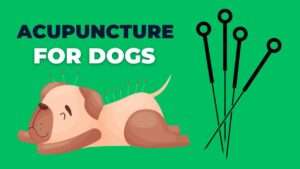



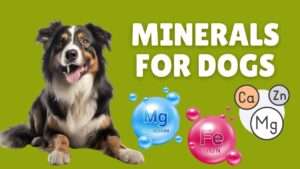




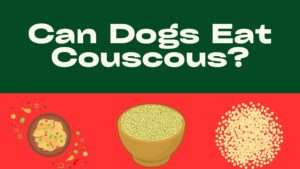
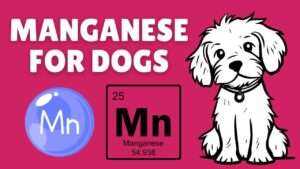

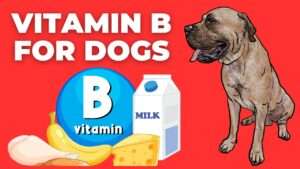

















+ There are no comments
Add yours